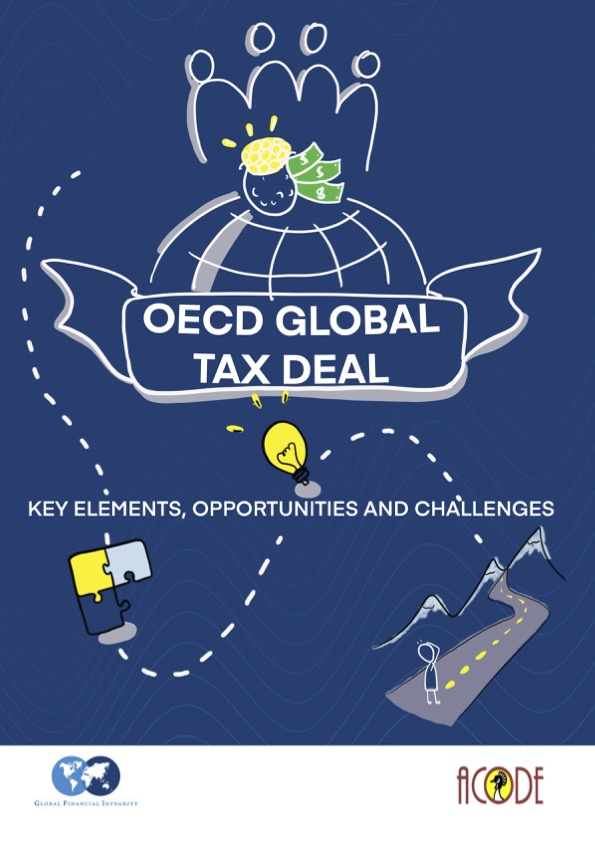March 11, 2022
The Global Corporate Tax Deal – An African Perspective.
Washington, DC — Global Financial Integrity (GFI) in collaboration with Advocates Coalition and Development and Environment Uganda (ACODE) in a new tool-kit examines the key elements, opportunities, and challenges of the OECD tax agreement. In what is being pegged as the biggest corporate tax reform in over a century, 137 counties in October 2021 agreed to a new global tax deal that aims to ensure a fairer distribution in taxes among countries. Due to concerns about the fairness of the deal, four countries – Kenya, Nigeria, Pakistan, and Sri Lanka – have not joined the agreement. Assessing the current momentum around the worldwide tax reform deal can improve our understanding of the African context while promoting a more unified African voice on international tax cooperation and tax governance for sustainable development.
The global minimum tax agreement puts multilaterally agreed limitations on tax competition by introducing a 15% minimum tax rate and will see countries collect around US$150 billion in new revenues annually. In addition to a minimum tax rate, the agreement also aims to reallocate taxing rights on more than US$125 billion of profit to “market jurisdictions” each year. Globally, the average corporate tax rate is close to 25%, with some countries like Nigeria charging 30% or more. As such, a 15% rate will leave incentives for tax competition and avoidance intact.
Although the Inclusive Framework allows all interested jurisdictions and countries to become members, there are conditions and annual fees they have to commit to join. The majority of African (52%) and Least Developed (69%) countries have not joined the framework. Further to this, most Multinational Enterprises (MNEs) are headquartered in high-income countries, thus the revenue generated under pillar two will disproportionately benefit these high-income countries. G7 and EU countries will take home more than two-thirds of the revenue while the world’s lowest-income countries receive a mere 3% of the revenue. “The main concern is that the added tax revenues under the two-pillar solution will disproportionately benefit high-income countries rather than low-income, developing, and African countries, leaving systematic inequalities in tax distribution intact,” said Jackie Wahome, a Policy Analyst at GFI. “A progressive and fair tax system must strengthen this relationship and foster good governance,” said Jackie.
GFI and ACODE call for civil society engagement in advocating for tax justice in Africa. “Civil Society Organizations can use this momentum to highlight efforts that have been ongoing on the continent to push for Africa’s taxing rights. These could include building support for home-grown solutions to address structural issues such as tax loopholes and illicit financial flows,” said James Muhindo of ACODE and the National Coordinator Civil Society Coalition on Oil and Gas in Uganda.
GFI and ACODE will continue to engage governments and stakeholders in Africa to develop tax and fiscal policy initiatives, including knowledge products that inform discussions on key tax issues in Africa and contribute to strengthening Africa’s voice on international taxation.
Global Financial Integrity (GFI) is a Washington, D.C.-based think tank, producing high-caliber analyses of illicit financial flows, advising governments on effective policy solutions, and promoting pragmatic transparency measures in the international financial system as a means to improve global development and security and reduce inequality.
Advocates Coalition for Development and Environment (ACODE) is an independent public policy research and advocacy think tank based in Uganda, working in the Eastern and Southern Africa Sub regions on a wide range of public policy issues.
Media enquiries should be directed to:
Dennis Kabia – [email protected], GFI Communications Associate
Jane Namubiru – [email protected], ACODE Communications Lead


